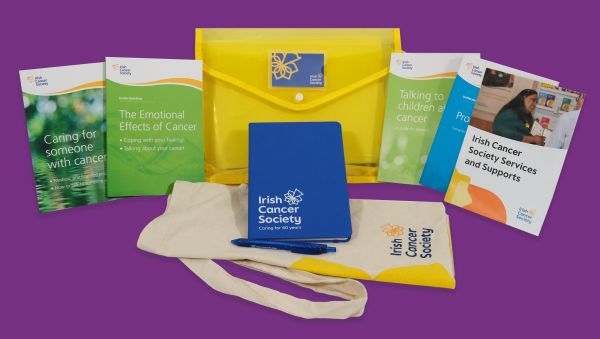Chronic myeloid leukaemia (CML)
Treatment
How is CML treated?
The aim of treatment is to put the CML into remission. Remission means leukaemia cells can no longer be detected in your body and you feel well.
The type and amount of treatment you will need depends on which phase your CML is in, your general health and any symptoms you may have.
Treatment for different phases of CML
Treatment with a targeted therapy drug called a tyrosine kinase inhibitor (TKI) is usually very effective at controlling the disease in the chronic phase. Once the disease is under control, most people can live a normal life. You will keep taking TKIs and have regular blood tests to check how well you are responding to treatment. TKIs are usually given as tablets that you take at home.
Your doctor may suggest different TKIs or chemotherapy, depending on your previous treatment, blood results, symptoms and overall health.
The aim of treatment during this phase is to get the disease under control and return it to the chronic phase. You may be given TKIs, chemotherapy and in some cases, a stem cell transplant. You may also have treatment to ease symptoms, such as bone pain or an enlarged spleen.
What are the types of treatment?
Most people with CML will be treated with a type of targeted therapy called a tyrosine kinase inhibitor (TKI). TKIs work by blocking the tyrosine kinase protein, which helps the cancer cells to grow.
You will stay on TKIs permanently as long as they are working to control your CML, even if your blood tests are normal and you feel well. If you stop taking TKIs, the effects of the CML may return.
TKIs can damage an unborn baby. Talk to your doctor about your options before treatment starts if you are planning to have children in the future.
Chemotherapy is when you use drugs to kill cancer cells. Although TKIs are the standard treatment for most people with CML, chemotherapy is sometimes given:
- If TKIs are not effective or not suitable
- To control symptoms when you are first diagnosed
- To try to stabilise blast-phase CML
- As a high-dose treatment before a transplant
A transplant works by destroying all the blood cells in your bone marrow and replacing them with healthy stem cells via a transfusion into your bloodstream. Stem cells are blood cells at their earliest stage of development that will grow into new healthy blood cells. The stem cells are usually taken from a donor. This is called an allogeneic transplant.
Transplants are mainly used when CML does not respond well to the various TKIs or becomes resistant to them, although they may be used for a patient who is still taking TKIs.
A transplant may be suggested at any phase of CML.
A transplant is a very intensive treatment, so it is not suitable for every patient.
Will I get side-effects?
The type of side-effects you get will depend on the type of treatment, the dose, the duration and your own general health. A lot of treatments cause fatigue. Read more about coping with side-effects and symptoms.
How will I know if my treatment is working?
At your follow-up appointments, your doctor will examine you and do blood tests. Other tests such as bone marrow and cytogenetic tests can be arranged if needed. The tests will show how well your treatment is working. Depending on the results of your tests, sometimes the doctor will give you a different drug or change your dosage.
Your full blood count is normal and no leukaemia (blast) cells can be detected in your blood. Your spleen is a normal size.
There has been some improvement in your blood count, but there are still signs or symptoms of CML. The spleen may be enlarged. Most people get a haematological response within 3 months of starting treatment with TKIs.
This is a more sensitive test that measures the amount of cells in your bone marrow that have the Philadelphia chromosome (Ph+ cells). If no Ph+ cells are found, it is called a complete cytogenetic response.
A molecular response is based on the results of the PCR test, which looks for the BCR-ABL1 gene in the blood or bone marrow. This is a very sensitive test that can detect one leukaemia cell in up to 10,000 normal blood cells.
- Complete molecular response (CMR): The PCR test cannot detect any BCR-ABL1 gene in your blood.
- Major molecular response (MMR): A tiny amount of the BCR-ABL1 gene is found in your blood.




Get help & support

Support Line
Free support pack

